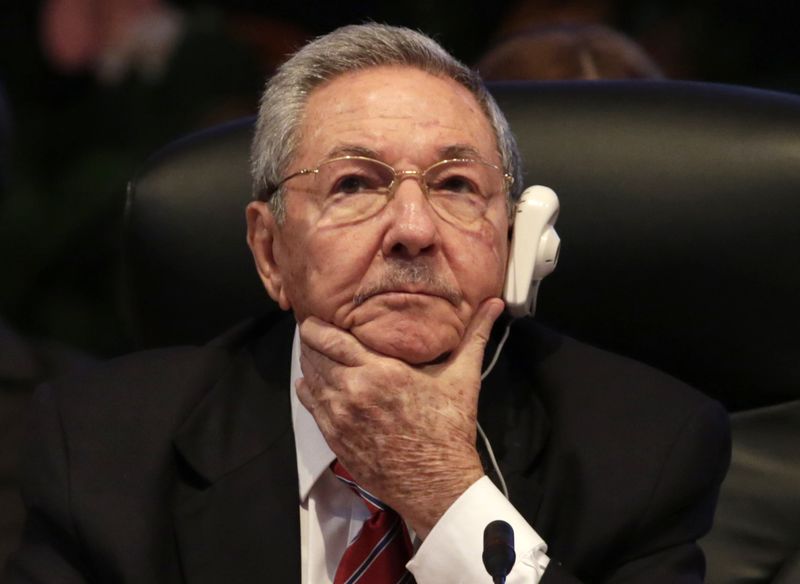Who is Kevin Hassett? Wolfe looks at the Trump ally tipped to become Fed Chair.
By Roberta Rampton
WASHINGTON (Reuters) - The White House does not dismiss the possibility of an eventual, precedent-shattering visit to Washington by Cuban President Raul Castro as part of President Barack Obama's plans to normalize relations with Havana.
"I wouldn't rule out a visit from President Castro," White House spokesman Josh Earnest told reporters on Thursday, a day after the two governments announced they would restore ties and open embassies after half a century of hostility.
U.S. Assistant Secretary of State for Western Hemisphere Affairs Roberta Jacobson, who is expected to visit Cuba in January, said renewed relations were not directly tied to progress on human rights in Cuba.
"The president has had the leaders of both Burma and China to the United States," he said. By meeting such leaders, the United States can better influence countries to better respect universal human rights, he said. Republicans and some Democrats vowed to fight Obama's efforts to expand commercial ties with the communist-led island. Earnest shrugged off the threat that Congress would block the president.
"The steps that the president announced are steps that are well within his executive authority," he said, and the White House was "not particularly" worried they could be stopped.
Most legal experts have said the president has broad executive powers to ease restrictions on commerce, transportation and banking with Havana, even if Congress objects.
The biggest obstacle to normal ties between the two countries is a decades-old embargo. With Republicans due to take control of both houses of Congress in January, chances are slim of lawmakers scrapping all sanctions on Cuba soon.
Those sanctions are enshrined in law, most notably the Helms-Burton Act of 1996. Republican leaders have said they would not allow legislation to move in the House of Representatives that would ease the embargo.
Congressional Republicans have been quick to float other ideas for blocking or at least slowing the thaw in relations, including denying funds to reopen an embassy in Havana and blocking the confirmation of an ambassador to Cuba.
(Additional reporting by Richard Cowan, Patricia Zengerle and Arshad Mohammed; Editing by Howard Goller)
